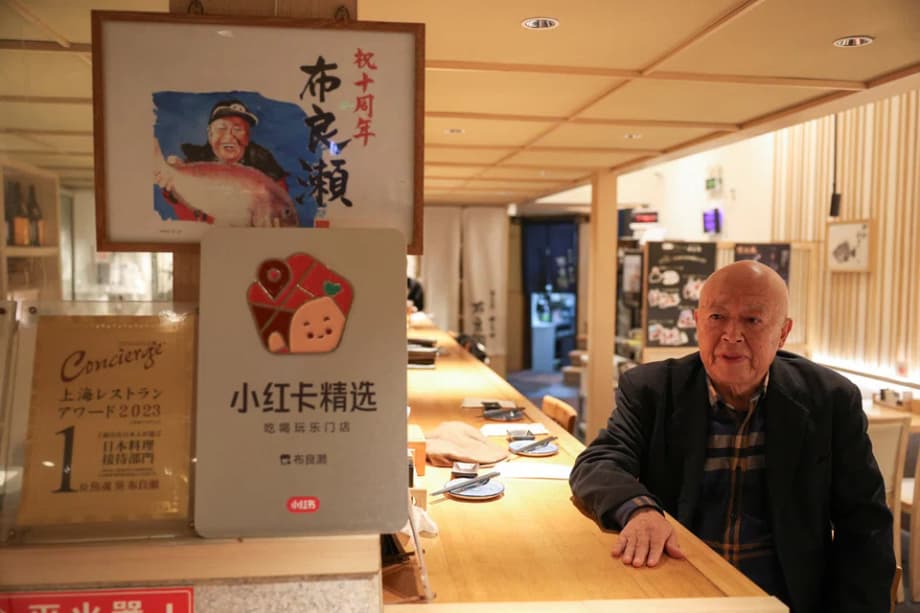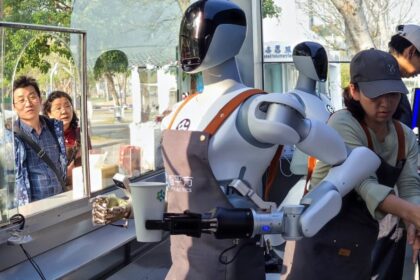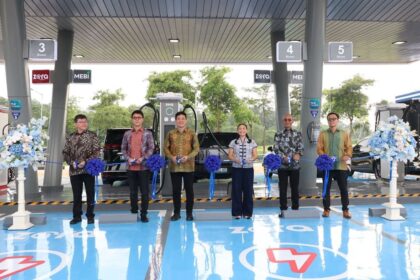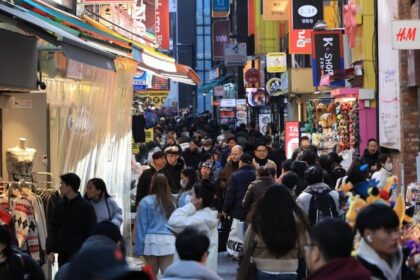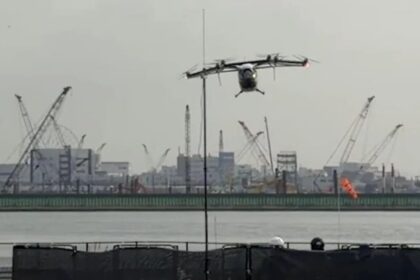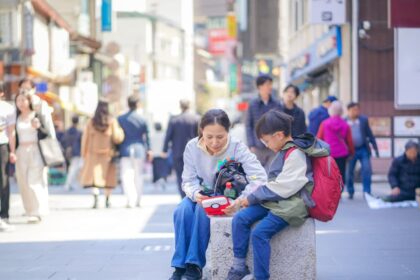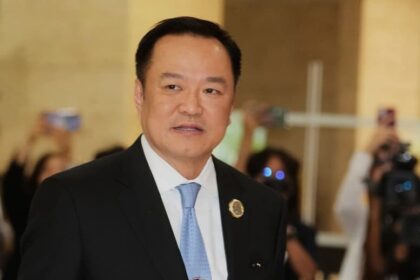A diplomatic flare up meets the dinner crowd
An intensifying row between Beijing and Tokyo is rippling through dining rooms in Shanghai and other Chinese cities. Within days of Japanese Prime Minister Sanae Takaichi stating that a Chinese attack on Taiwan that threatens Japan’s survival could trigger a military response, China reimposed a suspension on imports of Japanese marine products, urged citizens to avoid travel to Japan, and signaled additional countermeasures. For Japanese restaurants in China, the mix of policy moves hits two lifelines at once, supply of signature seafood and steady demand from local diners.
Owners describe a familiar pattern that returns when relations sour. In Shanghai, bookings for the evening service have begun to wobble. Cultural events and trade meetings have been called off. Japan has advised its citizens in China to step up safety awareness and avoid crowded places. The chill in official ties is seeping into everyday business routines, from menu planning to supplier calls.
Takashi Ito, who runs the seafood-focused Merase in Shanghai, has watched hopes of a turnaround fade again. Beijing had only recently begun to ease curbs imposed after Japan started the release of treated water from the Fukushima nuclear plant in 2023. The new measures, tied to the Taiwan dispute, pulled that door shut.
Before the latest cancellations, Ito explained the emotional whiplash that accompanies each political shock.
“Every time a major incident like this happens, we are in great pain because our hearts rise and fall as the relationship between Japan and China rattles every time. It’s very painful,” he said.
What did the Japanese prime minister say
Takaichi told lawmakers that if China used force against Taiwan in a way that threatened Japan’s survival, it could meet the threshold for collective self defense under Japan’s 2015 security legislation. That legal framework allows limited military action in a survival threatening situation, a step beyond the country’s traditional posture of strict self defense. Taiwan sits close to Japan’s southwest islands, and any conflict could put United States bases in Japan at risk, which explains why the scenario is treated as a core national security concern in Tokyo. Beijing considers Taiwan its territory and upholds the One China principle. Chinese officials summoned Japan’s ambassador and demanded that the remarks be retracted, while state outlets and diplomats criticized Takaichi’s stance.
Seafood squeeze returns after brief reprieve
China’s reimposed suspension on Japanese seafood, after a short period of partial easing earlier in the month, has immediate consequences for kitchens built on fish and shellfish from waters around Hokkaido, Kyushu, and the Pacific. Some species that define a Japanese menu in China, from certain types of sea urchin to deep sea bream, are difficult to source at comparable quality and consistency outside Japan. Substitution can work for a handful of items, but entire omakase style lineups, seasonal specials, and precise yakitori side dishes that rely on dried seaweed or fish stock get upended when imports stop.
Chinese authorities say the ban is grounded in safety concerns related to the ongoing discharge of treated water from the Fukushima site. They argue that Japan has not provided the detailed technical materials they want to ensure the safety of products entering the Chinese market. Tokyo counters that it has received no formal notice in some instances and says it will continue to seek smooth export flows while engaging counterparts on food safety. Talks to resume imports of other Japanese produce, including beef, have reportedly been shelved.
For restaurant owners, the economic calculus is unforgiving. Local sourcing can cover common items, but not the full spectrum of fish that define higher end Japanese dining. Chefs face a choice, remove signature dishes, raise prices, or both. Ito expects little relief in the near term.
“This incident is one of the biggest incidents so far,” he said. “I hope diplomats in Japan and China can work together to improve the situation. I hope that the people of China and Japan will be able to enjoy the same foods without fighting each other.”
Fukushima water release, what it means for seafood trade
Japan began releasing treated water from the Fukushima Daiichi plant in 2023 after years of preparation and international reviews. The water is filtered to remove most radionuclides and diluted to meet global standards before discharge. International nuclear experts have said the planned releases are consistent with safety norms used elsewhere. China has remained deeply skeptical and used import restrictions to signal its position. Earlier this month, limited easing suggested a path toward pragmatism. The new suspension shows how quickly political tensions can override technical debates, and how food supply chains can become collateral in broader disputes.
Travel boycott and cultural freeze hits the wider economy
The pressure is not confined to sushi counters. After China urged citizens to avoid travel to Japan, more than ten Chinese airlines offered refunds on routes to Japanese cities through the end of the year. One airline analyst estimated that around five hundred thousand tickets had already been canceled. Tourism stocks in Tokyo slumped, and organizers postponed screenings of upcoming Japanese films in China. Japanese artists who built large fan bases on Chinese platforms posted messages pledging support for One China to avoid backlash, a sign of the cultural chill that often accompanies diplomatic rifts.
One small tour operator in Tokyo, East Japan International Travel Service, saw a collapse in bookings within days. The firm serves groups from mainland China and Hong Kong, and was counting on holiday traffic to carry it into the new year. Vice president Yu Jinxin described the blow in blunt terms.
“This is a huge loss for us,” Yu said, adding that the company could manage if the disruption lasts a month or two, but a longer slump would threaten its future.
Industry estimates sketch out the macro picture. Tourism accounts for around 7 percent of Japan’s gross domestic product. Visitors from mainland China and Hong Kong account for around one fifth of total arrivals in a typical year. Analysts at a major research institute say a prolonged boycott could wipe out about 2.2 trillion yen in annual spending, a sizable hit to consumption that has been a bright spot of Japan’s recent recovery.
Beyond tourism, the chill is touching education and entertainment. Chinese agencies have warned students about studying in Japan. Screenings of new Japanese films have been suspended. Brands that rely on Chinese consumers for sales, endorsements, or social media traffic are recalibrating, unsure how long the environment will stay hostile.
Why tourism matters to Japan
Inbound travel has been a policy priority since before the pandemic, lifting regional economies and small businesses that depend on visitor foot traffic. Chinese travelers spend heavily on shopping, dining, and lodging. A swing in arrivals can move quarterly growth for prefectures with popular destinations and for entire sectors, from cosmetics to high end retail. A sudden reversal, even if temporary, can strain payrolls, investment plans, and local tax revenue.
How restaurant owners are coping day to day
Japanese restaurateurs in China are trying to adapt without losing what makes their food distinct. Some are doubling down on seasonality with Chinese coastal catches that can stand in for certain Japanese species. Others are reshaping menus toward grilled meats, vegetables, and rice bowls while they wait out the supply crunch. For items like kombu seaweed or dried bonito that undergird broths and sauces, chefs are testing suppliers from other regions, but flavor profiles change and loyal customers notice.
Safety has not been the main worry for many owners, even as both governments trade sharp words. The larger concern is whether these ruptures make it harder for neighbors and colleagues to continue connecting over food and business. That view is echoed by Kazuaki Sone, who moved to China in 2012 and opened the yakitori spot Hyakumanben two years ago.
Sone said, “I have experienced diplomatic tensions between Japan and China several times. People in general, especially good friends, do not treat me any differently. That is why I am still able to work here in China.”
Day to day, operators are managing inventory carefully to avoid waste. Seafood that remains in cold storage must move before quality drops. Perishable imports are being rationed for omakase counters or loyal regulars. Owners are briefing staff to answer customer questions about sourcing and safety. Delivery platforms can cushion the blow a little, but high end sushi and kaiseki travel poorly and depend on the in person experience.
What happens when imports stop overnight
When a border closes to a category of food, kitchens run through stock in days, not weeks. The cold chain is finely tuned, from boats to auctions to cargo to last mile delivery into city kitchens. Sudden policy changes break that rhythm, and contracts are hard to enforce when paperwork at ports turns uncertain. Restaurants pivot to domestic wholesalers and neighboring markets in Southeast Asia, but those channels face their own constraints. Substitution can keep doors open, yet it rarely saves the full margin that owners need to cover rent and payroll in top tier Chinese cities.
Why the Taiwan issue is inflaming relations now
Sanae Takaichi is Japan’s first female prime minister and a long time advocate of a stronger defense posture. Her comments on Taiwan marked a clearer public line than previous leaders usually draw. Beijing saw that as provocative and out of step with the tone it prefers in the neighborhood. The reaction was swift, including a demand that Japan walk back the remarks, a spike in critical state media coverage, and a social media post by a Chinese consul general in Osaka that stirred outrage in Japan. Tokyo issued a notice asking Japanese citizens in China to be cautious and avoid crowds.
The security context explains why her words landed so hard. Taiwan sits next to sea lanes and air corridors that connect to Japanese territory. United States forces are based across Japan under a defense treaty, and any crisis in the Taiwan Strait could draw in those assets. Japan’s 2015 security legislation created a legal path for collective self defense in a survival threatening situation, subject to strict conditions. That framework is central to the debate over how Japan would respond if a conflict spilled across the region.
What could ease the pressure
De escalation hinges on both practical and political steps. Technically focused talks on the Fukushima water discharge could lower friction if officials agree on transparent sampling, third party monitoring, and quick data sharing. Trade working groups could carve out narrowly tailored exemptions for certain marine products with enhanced inspection regimes. Cultural exchanges and film screenings could restart with careful choreography that avoids inflaming domestic audiences. None of these steps resolves the deep divide over Taiwan, yet they can help separate everyday commerce from high politics and give businesses room to breathe.
What to Know
- China reimposed a suspension on imports of Japanese seafood after remarks by Prime Minister Sanae Takaichi about Taiwan.
- Japanese restaurants in China report cancellations and menu disruption, with owners struggling to source key fish locally.
- Japan advised citizens in China to heighten safety awareness as state media and diplomats in China criticized Takaichi’s stance.
- China urged citizens to avoid travel to Japan, airlines offered refunds, and analysts estimate a potential 2.2 trillion yen annual hit to spending.
- Tourism makes up about 7 percent of Japan’s GDP, and Chinese visitors account for roughly one fifth of arrivals.
- Screenings of new Japanese films in China were suspended, and entertainers posted messages backing One China to avoid backlash.
- China says seafood curbs are tied to concerns about Fukushima treated water, while Japan seeks to keep exports moving and engage on safety.
- Business owners in China say personal relations remain mostly cordial, but repeated flare ups make cross border collaboration harder.


